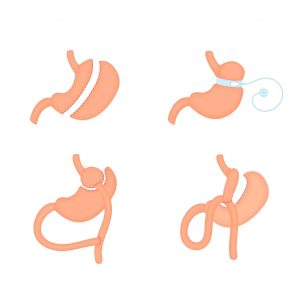Introduction
Liposuction is often misunderstood as a weight loss surgery, but in reality, its purpose and limitations differ significantly. While liposuction can sculpt and contour the body, it is not intended as a solution for weight loss. Understanding the capabilities and limitations of liposuction is crucial for individuals considering cosmetic procedures to achieve their desired body shape and size.

What can a Liposuction do?
Liposuction is a surgical procedure designed to remove localized deposits of fat that are resistant to diet and exercise. It targets specific areas of the body, such as the abdomen, thighs, hips, arms, and buttocks, to improve body contours and proportions. Liposuction can effectively reshape and refine body contours, enhancing overall appearance and self-confidence.
Which fat can be removed with Liposuction?
Liposuction is most effective for removing subcutaneous fat, which lies beneath the skin’s surface. It can address stubborn pockets of fat that are disproportionate to the rest of the body, creating smoother and more balanced contours. However, it is important to note that liposuction is not suitable for removing visceral fat, which surrounds internal organs and contributes to overall body weight.

Why Liposuction can not remove fat limitless?
While liposuction can produce significant improvements in body contouring, it is not a limitless solution for weight loss. There are limitations to the amount of fat that can be safely removed during liposuction procedures. Excessive fat removal can increase the risk of complications such as irregularities, contour deformities, and skin laxity. Liposuction is most effective for individuals who are close to their ideal weight and have good skin elasticity.
Who is suitable for Liposuction?
Ideal candidates for liposuction are individuals who are at or near their ideal body weight but have localized areas of excess fat that are resistant to diet and exercise. They should be in good overall health and have realistic expectations about the outcomes of the procedure. Liposuction is not a treatment for obesity or a substitute for healthy lifestyle habits.

What is an alternative surgery for obese patients?
For overweight patients who are seeking significant weight loss, bariatric surgery may be a more appropriate option. Bariatric surgery procedures, such as gastric bypass or sleeve gastrectomy, are designed to help individuals achieve substantial weight loss by reducing the size of the stomach and altering the digestive process. These surgeries are typically recommended for individuals with a body mass index (BMI) above 35 and obesity-related health conditions.

Conclusion
Liposuction is a valuable cosmetic procedure for sculpting and refining body contours, but it is important to recognize that it is not a weight loss surgery. Understanding the limitations of liposuction and its suitability for specific candidates is essential for achieving safe and satisfactory outcomes. For individuals seeking significant weight loss, alternative surgical options such as bariatric surgery may be more appropriate. Consulting with a qualified plastic surgeon is the first step in determining the most suitable treatment plan to achieve your aesthetic goals while prioritizing your overall health and well-being.
Disclaimer: The content on this blog is intended for general informational purposes only. It is not a substitute for professional medical advice, diagnosis, or treatment. Always consult qualified healthcare providers for personalized advice. Information regarding plastic surgery, dental treatment, hair transplant, and other medical procedures is educational and not a guarantee of results. We do not assume liability for actions taken based on blog content. Medical knowledge evolves; verify information and consult professionals. External links do not imply endorsement. By using this blog, you agree to these terms.





